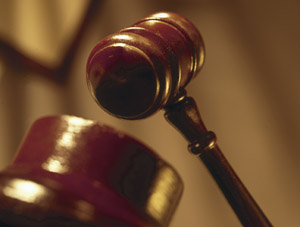EVIDENCE IN DUI CASES
[vc_row css=”.vc_custom_1480959142372{background-color: #ffffff !important;}”][vc_column][vc_row_inner][vc_column_inner][vc_column_text css=”.vc_custom_1481073651256{padding-right: 35px !important;padding-left: 35px !important;}”]
Evidence in DUI Cases
 In DUI cases, evidence is observations by police of a person’s driving, demeanor, appearance, statements, conduct and performance on field sobriety tests. Evidence also includes the alcohol/drug results (breath, blood, urine), or the driver’s refusal to take any chemical tests.
In DUI cases, evidence is observations by police of a person’s driving, demeanor, appearance, statements, conduct and performance on field sobriety tests. Evidence also includes the alcohol/drug results (breath, blood, urine), or the driver’s refusal to take any chemical tests.
The real question is: how can a person charged with a DUI prevent the DMV and the courts from using anything unfavorable as evidence against the driver?
This prevention is called “suppression of evidence.” So, the questions are: how and why and can evidence be suppressed AND what evidence can be suppressed.
If police violate constitutional guidelines in their conduct, any and all evidence that they obtain in violation of constitutional rules can be “suppressed”, meaning excluded. This evidence includes all observations by police of a person’s driving, demeanor, appearance, statements, conduct and performance on field sobriety tests. Evidence also includes the alcohol/drug results (breath, blood, urine), or the driver’s refusal to take any chemical tests.
By suppressing or excluding evidence of all chemical test results, a driver effectively wins his case because the DMV and the prosecution in court would have no evidence to use against the driver.
A person who is stopped or arrested by police is “seized” within the meaning of the US and California constitutions. Police need valid, constitutional reasons to seize a person. For example, if police have a hunch that a person is driving while impaired (it is late and the driver is the only one on the road), can police pull the driver over?
If police do stop the driver, any evidence should be suppressed because case law is clear: a mere hunch is not enough to justify the intrusion that stopping a person represents. To stop a driver, police need a reasonable suspicion that criminal activity is occurring or has just occurred. The reason or reasons must be specific to the driver or vehicle. For example, police cannot stop all green cars because they receive a 911 call that a driver is swerving all over the road. The 911 caller must provide enough information that allows police to identify the specific green car in question. Police must also corroborate the information provided.
Similarly, police must have probable cause to arrest a person for driving under the influence. Many times, for example, police do not actually witness any driving and therefore a motion to suppress evidence may be granted.
If police conduct is unconstitutional, the driver may also prevail at the DVM hearing because the hearing officers cannot ignore improper reasons to stop, detain and arrest persons suspected of driving under the influence of alcohol or drugs.
What if an officer claims that a driver committed a traffic violation when in fact the driver did not? The DUI attorney can obtain the dispatch tapes that are recordings of the officer’s conversations with the dispatchers. Typically, before pulling a driver over, the officer contacts his station and provides the vehicle license plate to learn more information about the driver (any past convictions for violence, any warrants for arrest). In the officer’s conversation with the dispatcher, often the dispatcher will inquire or the officer will state why the vehicle is being stopped. Such a recording can refute what an officer writes in his or her report.
DISCLAIMER: The results of any person’s DUI case described on this web site and/or in the Bay Area DUI Law newsletter depend on factual and legal circumstances that are unique to a specific person. Information provided by this web site and/or the Bay Area DUI Law newsletter does NOT constitute a guarantee, warranty or prediction regarding the outcome of your legal matter. Any reference to laws, procedures, punishment or license consequences at court or the DMV in this web site and/or Bay Area DUI Law newsletter is NOT intended to be complete description of what can and will happen in any or every DUI case but instead is a simplified summary to facilitate the reader’s understanding of general issues involving DUI law. The law is in constant change; penalties and consequences change; as such, the reader should not and cannot rely upon anything mentioned in this web site and/or Bay Area DUI Law newsletter. The reader is strongly advised to seek competent legal counsel to ascertain the law, penalties and consequences that apply to his/her unique circumstances.[/vc_column_text][/vc_column_inner][/vc_row_inner][/vc_column][/vc_row]
At a Glance
Mark Blair
- Law Office of Mark Blair | Bay Area DUI Law
- Over 39 years of DUI experience
- 10.0 “Superb” Avvo Rating
- Hundreds of 5 Star Reviews
- GREAT DUI RESULTS
- Learn more
